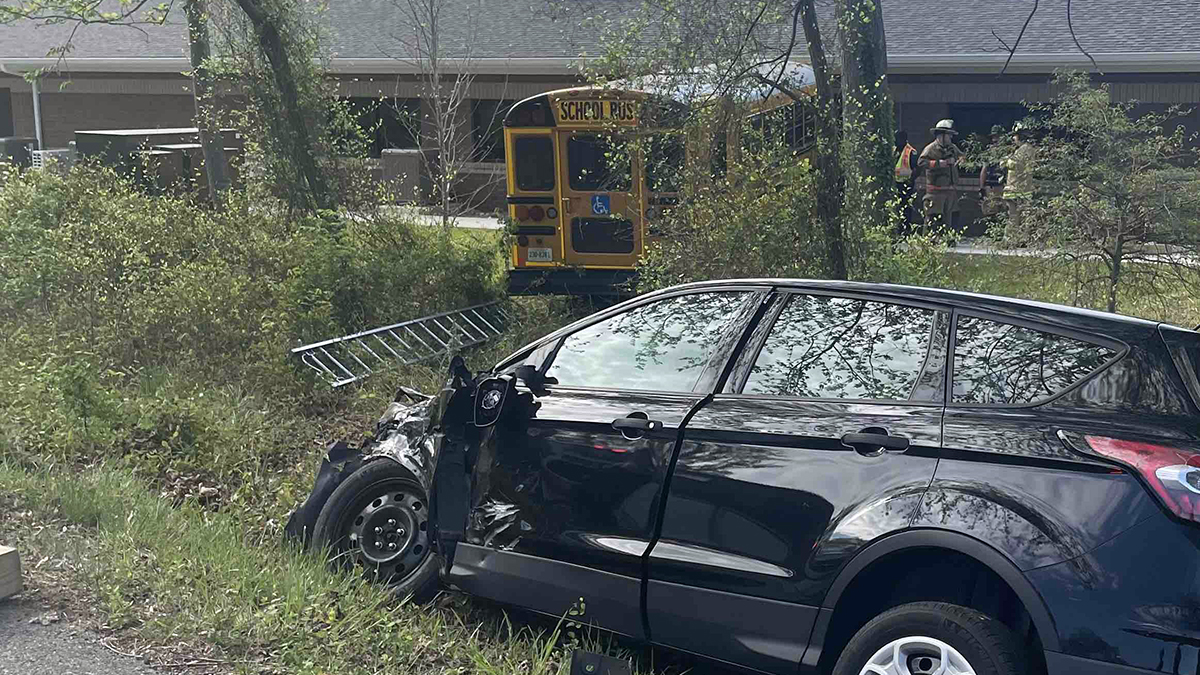With temperatures soaring above 90 degrees for a good part of the summer, you’d think solar panel customers would be thrilled -- a hot, blazing sun usually means money in their pockets. But the News4 I-Team has received a lot of complaints from frustrated customers who say going green has put them in the red.
Including Victoria Wales from Silver Spring, Maryland,
"I picked the home because it has a lot of sun,” said Victoria Wales of Silver Spring, Maryland. “I needed a lot of sun; I’m from Florida.”
She said she was excited to go solar, especially when a salesperson told her it would be at no cost to her. But in 2019, roughly a year after her solar panels were installed, Wales’ roof started leaking.
We're making it easier for you to find stories that matter with our new newsletter — The 4Front. Sign up here and get news that is important for you to your inbox.
"And that’s where my whole journey began of my many challenges with this company," she said.
Wales said not only did she learn she would have to pay Sunrun to remove the solar panels while her roof got fixed, but she’d also have to pay for them to be reinstalled, costing her more than $2,000.
"That sort of unleashed months and months of me playing this, like, hot potato game with them where they would just consistently transfer me to a new representative,” said Wales.
Local
Washington, D.C., Maryland and Virginia local news, events and information
According to Wales, it took Sunrun five months to show up and remove her solar panels so her roof could finally get fixed.
The News4 I-Team heard from a number of solar panel customers with similar stories about roof leaks and poor customer service from other companies.
Edwin Monono of Greenbelt, Maryland, said his roof started leaking a few years after he had Tesla solar panels installed.
“It’s hard to reach them,” he said. “Their customer service is very bad. I told them that, ‘Hey, apparently this is mold. Come and do this thing quickly.’ They kept postponing and postponing, and finally they came."
Monono said Tesla removed his panels Oct. 20, 2020, and the roof was replaced. But when it was time for Tesla to put the panels back on, Monono decided he didn’t want them anymore.
"I told them that let’s be real, let’s look at the predicament these panels have caused me,” said Monono.
But Tesla wouldn’t take the panels back, and they’ve remained in his backyard for close to a year. Tesla continues to charge Monono for the estimated power he would have produced, which is allowed under the contract he signed for 20 years, ending in 2037.
In an email exchange between Tesla and Monono, he was told, "If you do not allow the system to be reinstalled on the home, you will be in default of your contract and you will be responsible for the full system value.”
Monono said Tesla was unwilling to negotiate.
News4 tried to reach out to Tesla to get its side but learned the company dissolved its media relations department in 2020. News4 reached out to almost a dozen other Tesla employees, filled out customer service forms and sent a tweet to Elon Musk himself. That didn’t work, either.
What the Experts Say
Solar panel expert Corey Ramsden said complaints span all segments of the market, big installers and small.
"Folks get excited about solar,” said Ramsden of Solar United Neighbors, a nonprofit to help homeowners go solar. “It’s a wonderful technology, saves people money and sometimes they just take a step too quickly rather than taking some time.”
Ramsden said problems arise when homeowners don’t fully understand what they’re signing up for. There are typically two ways to go solar. Buying the panels outright means owning them and all the maintenance costs. Signing a power purchase agreement (PPA), usually for 20 years, means not owning the system, just paying for the power.
Twenty years is a long time. Here are four things to ask before making that huge commitment:
- What happens if I move and the new owners don’t want solar panels?
- If there’s a leak, how long will the warranty cover it?
- Will I be charged for removal and reinstallation?
- What happens in year 21? Do I own the solar panels?
All of that should be spelled out in the contract.
Wales wishes she knew what to ask before signing up.
"In hindsight, signing up to do a 20-year contract was such a big commitment," she said.
It took months of calling again to have her panels reinstalled after her roof got repaired, happening just this June.
The I-Team reached out to Sunrun, which said its operations were impacted by the pandemic but added, ”Although we understand that COVID-19 is not an excuse for lack of communication and/or extended delays, it is important to note that state-specific policies and health guidelines have impacted our operations.”
A spokesperson also said, “Since 2007, Sunrun has helped over 600,000 households across the nation transition to clean, renewable energy. Although each home we serve is different and presents its own set of unique challenges, we strive to deliver a reliable service without interruption. Unfortunately, issues do arise from time to time in our labor-intensive business. When we are made aware of an issue or concern, we make every effort to deliver an exceptional experience and do right by the customer in a timely manner. Because our agreements are often for 20 to 25 years, it is in our best interest to be an honest, transparent partner and take care of our customers and their homes.”
The company did eventually refund Wales for the removal and reinstallation of her panels. They also issued a courtesy check to make up for the months of production lost.
Resources
- Solar FAQ
- Free going solar help
- How to read your proposal
- Considerations for a lease/ppa
- Having problems with your installer?
- For people who have already gone solar
Reported by Susan Hogan, produced by Rick Yarborough, and shot and edited by Lance Ing.



